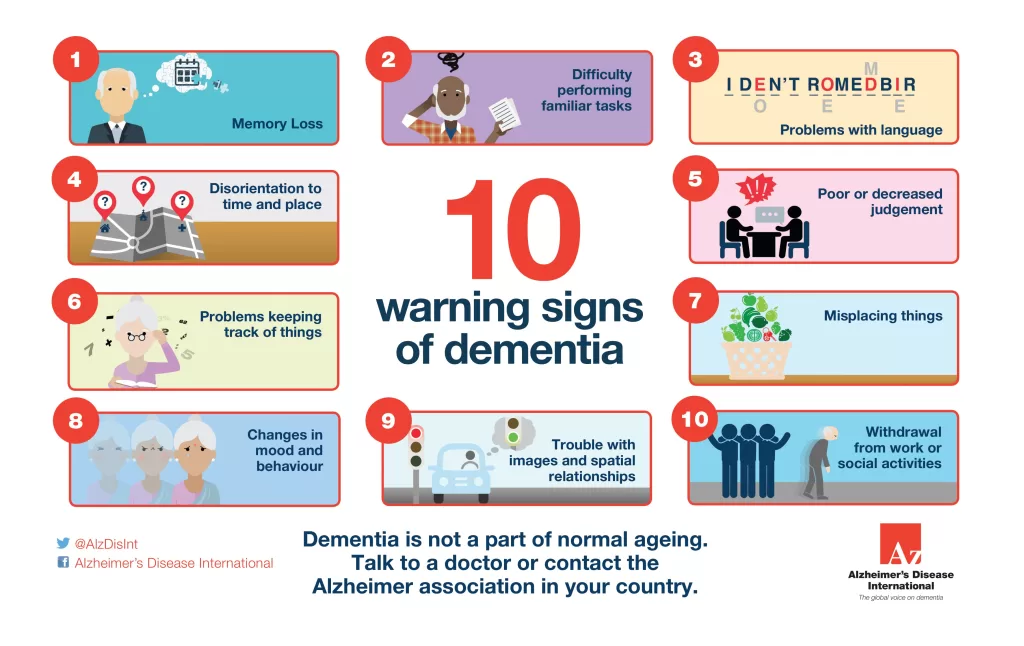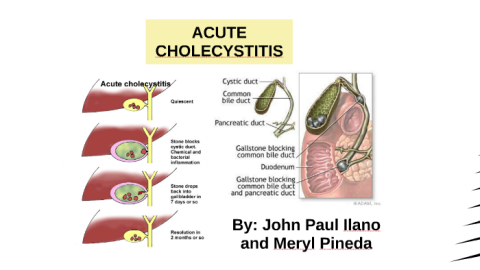Early warning signs of dementia are critical indicators that can help us understand who may be at risk as cognitive decline progresses. As the population ages, recognizing these signs becomes increasingly important in addressing dementia risk factors well ahead of a formal diagnosis. Studies have highlighted that changes in brain health, including issues like unexpected weight loss and a history of serious infections, can serve as amazing predictors for future cognitive impairment. Moreover, emerging research suggests that bilingualism might play a protective role in maintaining cognitive function, offering a proactive approach to dementia prevention. By understanding and monitoring these early signs, individuals can take significant steps toward safeguarding their cognitive health as they age.
The initial indications of cognitive deterioration are vital signs that reveal potential challenges in brain functionality. In examining the factors that contribute to dementia, it’s essential to consider both lifestyle and environmental influences that may exacerbate cognitive decline. Factors such as prolonged hospitalizations due to infections and socioeconomic status in living environments can accelerate the aging process of the brain. Moreover, engaging in practices like speaking multiple languages not only enriches communication but could also enhance cognitive resilience as we age. Awareness and early identification of these indicators can empower individuals to take preventive measures and seek help, ultimately leading to better outcomes in brain health.
Understanding Early Warning Signs of Dementia
Recognizing the early warning signs of dementia is crucial for timely intervention and potential cognitive preservation. Among the first indicators are subtle changes in memory and confusion in daily tasks that may often be overlooked. Additionally, mood swings and personality changes can signal early cognitive decline that could indicate an impending dementia diagnosis. Being proactive and recognizing these symptoms early can lead to more effective management strategies and discussions with healthcare providers.
Another significant early warning sign of dementia is noticeable changes in executive functions such as planning, organizing, and decision-making abilities. Patients may struggle with tasks that once seemed straightforward or might find it challenging to follow conversations or tracks of thought during social interactions. By identifying these symptoms early, individuals and families can advocate for appropriate assessments and begin lifestyle modifications that may delay progression.
The Impact of Cognitive Decline on Brain Health
Cognitive decline is not merely a symptom of aging, but a complex interplay of factors that can ultimately lead to dementia. Good brain health is foundational to overall well-being, and understanding cognitive decline can help create strategies aimed at prevention. Key factors in maintaining cognitive functionality include physical activity, mental stimulation, and social engagement. These factors, when integrated into daily life, are essential in promoting not just longevity but quality of life.
Preventing cognitive decline entails addressing several risk factors including lifestyle choices such as diet, exercise, and social interaction. Nutrition plays a critical role in brain health, with a balanced diet rich in antioxidants and omega-3 fatty acids shown to support cognitive function. Furthermore, regular mental exercises, such as puzzles and problem-solving tasks, stimulate neuronal activity and enhance brain connectivity, ultimately reinforcing cognitive resilience.
Weight Loss as a Dementia Risk Factor
Recent studies have established a consequential link between ongoing weight loss and an increased risk of dementia. This situation is particularly troubling as weight loss often goes unnoticed until cognitive symptoms become profound. It is crucial for caregivers and healthcare providers to monitor weight in older adults, especially those with obesity, since the gradual decline can significantly precede cognitive impairment by several years.
Understanding the mechanism behind weight loss related to dementia can help in addressing this risk factor. Researchers suggest that metabolic changes and the body’s inflammation response may contribute to both weight loss and cognitive decline. By implementing strategies to maintain a healthy weight, such as balanced nutrition and physical activity, individuals can potentially lower their risk of developing dementia.
Infections and Long-Term Dementia Risk
Recent findings have sparked concern over how serious infections can serve as substantial dementia risk factors. Individuals hospitalized for severe infections exhibit an increased risk of developing dementia that persists for decades afterward. This revelation emphasizes the importance of preventing infections, especially in older individuals who may be more vulnerable to both infections and cognitive decline.
The data suggests that healthcare strategies focusing on infection prevention could significantly impact long-term brain health. Additional resources dedicated to managing chronic infections, promoting vaccinations, and increasing awareness about the risks associated with severe infections should be part of dementia prevention programs, highlighting how addressing physical health can influence cognitive outcomes.
Living Conditions and Their Effect on Brain Aging
The correlation between living in economically disadvantaged neighborhoods and accelerated brain aging underscores a significant public health issue. Individuals in these areas often experience additional stressors such as poor access to healthcare, limited social support, and socio-economic instability. These factors collectively contribute to both physical and mental health vulnerabilities, leading to a higher risk of cognitive decline.
Addressing these disparities requires the implementation of community-based interventions that focus not only on improving living conditions but also on enriching social environments. Programs aimed at enhancing access to education, healthcare services, and social resources can foster healthier neighborhoods conducive to brain health and, consequently, help in reducing the risk of dementia.
Bilingualism as a Protective Factor Against Cognitive Decline
Emerging research indicates that bilingualism may offer protective benefits for cognitive function in older adults. Studies have revealed that individuals who regularly use more than one language perform better on cognitive assessments, showcasing enhanced mental flexibility and problem-solving skills. This raises exciting possibilities for using bilingualism as a potential strategy in dementia prevention.
Promoting bilingual education and encouraging language learning can serve as both an individual and community-level intervention to enhance cognitive resilience. By supporting adults in maintaining their linguistic skills or learning new languages, we can foster a positive impact on cognitive health and longevity, which may ultimately contribute to lowering dementia risks.
The Role of Lifestyle Modifications in Dementia Prevention
Various studies have consistently highlighted the impact of lifestyle choices on dementia risk factors. Engaging in regular physical activity, maintaining a healthy diet, and ensuring adequate social interaction are integral aspects of a lifestyle that promotes brain health. These modifications not only enhance cognitive functions but also assist in managing conditions that can lead to dementia.
Moreover, awareness campaigns focused on educating individuals about the importance of lifestyle choices can empower communities to prioritize changes that foster cognitive health. Incorporating activities that promote mental health, such as meditation or creative pursuits, can also play a pivotal role in maintaining brain function well into old age.
Monitoring Neurodegeneration: The Importance of Early Detection
Early detection of neurodegeneration is paramount for effective interventions and treatment strategies. Technologies like MRI and CT scans now play a critical role in diagnosing processes associated with cognitive decline. By utilizing advanced imaging techniques, healthcare professionals can identify brain abnormalities indicative of early dementia pathology even before symptoms materialize.
Furthermore, regular screenings for cognitive function among at-risk populations can facilitate early diagnosis, enabling timely lifestyle changes and improved management strategies. Education surrounding the importance of routine cognitive assessments can encourage individuals and families to engage in proactive approaches, ultimately enhancing outcomes for those at risk.
Environmental Influences on Cognitive Function
Environmental factors undoubtedly play a significant role in cognitive health and the risk of dementia. Variables such as pollution and residential stressors can accelerate cognitive decline, particularly in vulnerable populations. Understanding these influences can help guide community-level initiatives aimed at improving brain health through environmental modification.
Promoting access to green spaces, improving air quality, and ensuring safe neighborhoods can positively impact the well-being of residents. By addressing environmental risk factors, we not only enhance individual quality of life but also contribute to the broader goal of reducing the overall incidence of dementia in the population.
The Importance of Community Support in Dementia Care
Community support systems are vital for individuals experiencing cognitive decline or dementia. Building networks of care can provide emotional, physical, and social assistance, enhancing the quality of life for both patients and their caregivers. Programs aimed at educating communities about dementia can foster empathy and understanding, creating environments where individuals feel supported and valued.
Moreover, communities can benefit from establishing groups that facilitate social engagement amid cognitive decline. These support structures not only alleviate feelings of isolation for those affected but also encourage active participation in cognitively stimulating activities, contributing to better overall mental health and potentially delaying the progression of dementia.
Frequently Asked Questions
What are the early warning signs of dementia that I should look for?
Early warning signs of dementia include progressive cognitive decline, memory loss, difficulty with problem-solving, confusion with time or place, and changes in mood or personality. Recognizing these symptoms early is crucial for intervention and management of dementia risk factors.
How does cognitive decline relate to the risk of developing dementia?
Cognitive decline is often one of the first indicators of impending dementia. As cognitive abilities deteriorate, it becomes critical to identify potential dementia risk factors. Interventions at early stages may help mitigate progression and improve brain health.
Can brain scans help in identifying early warning signs of dementia?
Yes, brain scans, particularly MRI scans, can reveal changes associated with aging and cognitive decline. Recent studies show that combining these scans with clinical assessments can accurately predict dementia risk, enabling early intervention.
What role does weight loss play in the early signs of dementia?
Ongoing weight loss can be a significant early warning sign of dementia, often occurring years prior to diagnosis. Recognizing this symptom is essential for assessing dementia risk, especially in individuals with obesity who may experience faster cognitive decline.
How does infection history affect dementia risk?
Individuals with a history of serious infections requiring hospitalization have a substantially higher risk of developing dementia later in life. This connection highlights the importance of preventing infections as a strategy for reducing dementia risk.
What environmental factors contribute to the early warning signs of dementia?
Living in disadvantaged neighborhoods can lead to accelerated brain aging and an increased risk of dementia. These environmental factors impact individuals as early as age 45, emphasizing the need for tailored dementia prevention programs.
Does bilingualism impact cognitive health in older adults and dementia risk?
Yes, bilingualism has been associated with better cognitive performance in older adults. Studies suggest that regularly using two languages can enhance brain health and potentially reduce dementia risk, making bilingualism an important factor in cognitive decline prevention.
What are the best methods for dementia prevention based on early warning signs?
Effective dementia prevention methods based on early warning signs include maintaining a healthy lifestyle, monitoring weight changes, addressing cognitive decline promptly, and engaging in lifelong learning such as bilingualism to strengthen brain health.
Why is it important to recognize early warning signs of cognitive decline?
Recognizing early warning signs of cognitive decline is vital for implementing timely interventions that can slow down or mitigate the progression to dementia. Early identification of risk factors allows for proactive changes in lifestyle and health management.
| Key Points | Details |
|---|---|
| Brain Scans | Using MRI scans, researchers can predict cognitive decline in older adults with 81%-91% accuracy. |
| Weight Loss | Ongoing weight loss may signal dementia progression and often begins 10 years before diagnosis. |
| Infection History | Hospitalization for serious infections increases dementia risk threefold for the next 30 years. |
| Neighborhood Disadvantage | Living in poorer neighborhoods correlates with accelerated brain aging and higher dementia risk starting as early as age 45. |
| Bilingualism | Speaking multiple languages is linked to better cognitive function in older adults, potentially reducing dementia risk. |
Summary
The early warning signs of dementia are crucial for timely intervention and prevention strategies. Recognizing these signs—such as changes in brain health, weight fluctuations, history of infections, and environmental factors like neighborhood economic status—can help identify those at risk. This understanding is essential as dementia is not a guaranteed consequence of aging. By addressing modifiable risk factors and promoting cognitive health through strategies like bilingualism, we can support healthier aging and potentially reduce the rising incidence of dementia.
The content provided on this blog (e.g., symptom descriptions, health tips, or general advice) is for informational purposes only and is not a substitute for professional medical advice, diagnosis, or treatment. Always seek the guidance of your physician or other qualified healthcare provider with any questions you may have regarding a medical condition. Never disregard professional medical advice or delay seeking it because of something you have read on this website. If you believe you may have a medical emergency, call your doctor or emergency services immediately. Reliance on any information provided by this blog is solely at your own risk.







